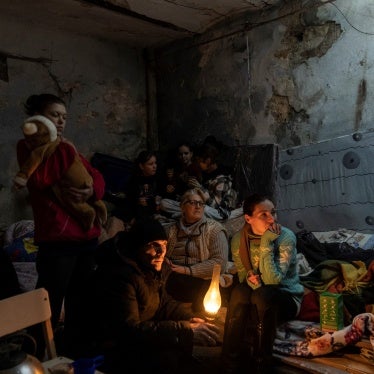“When my husband went into prison I was 38-years-old. I’m now 58,” says Holbika Juraeva. Through tears, she says she fears he will never be released alive.
Juraeva’s husband, Murod Juraev, was an opposition MP in Uzbekistan in the early 1990s. He has been in prison since 1994 for expressing opposition to the policies of the man who remains president today, Islam Karimov.
Juraev was due to be released in 2004 but authorities have extended his sentence four times for alleged violations such as “incorrectly peeling carrots” in the prison kitchen.
Juraeva said her husband’s case, which the UN and many governments have raised with Tashkent, was entering a critical phase as his next release date of December 2015 approaches. “If his sentence is extended again I fear I’ll be picking up his body from prison,” she said, adding that her husband, who is 62, is seriously ill, having been tortured in prison on several occasions.
“When I see him in prison I’m really scared – he looks like a skeleton,” she added.
I met Juraeva during a rare visit to Tashkent by an international human rights group. Uzbekistan has an authoritarian government with an abysmal human rights record, including no elections deemed free and fair, no right to protest, a state-controlled media and heavily controlled internet, and regular reports of torture in prison.
Groups such as Human Rights Watch have been blocked from working there for several years. Despite this, I was given a visa following our request to present to the government a new report on cases of politically motivated imprisonment like Juraev’s.
Our request to raise our human rights concerns with relevant government officials was denied, as was our bid to visit imprisoned activists featured in our report. This was a sign, perhaps, that Uzbekistan remains far from ready for a meaningful dialogue with human rights groups on serious abuses. Yet the trip offered the chance to get a sense first-hand of the country’s human rights situation, in particular the courage and determination of people like Holbika Juraeva.
Dozens of human rights activists, journalists, opposition figures and others are in prison on such charges. There are estimates that thousands more are behind bars for allegedly violating the country’s strict rules on how Islam can be practiced.
Elena Urlaeva is one of the very few human rights defenders still in Uzbekistan standing up for the rights of such people. A middle-aged woman with long ginger hair, Urlaeva welcomed me with a smile into her neat apartment on Tashkent’s outskirts. “In spite of the difficulties on this work, I’m motivated to help people in need,” she said.
“Difficulties” is a huge understatement. The government tolerates almost no independent human rights monitoring, and harasses those who try. Physical and electronic surveillance are commonplace. Urlaeva has been imprisoned, subjected to forced psychiatric treatment, and beaten during the peaceful mini-protests she organises. Sometimes the police get wind of her protests before they happen and block her from leaving her apartment: She shows me pictures of policemen in her living room, sitting in the spot where we were sipping tea.
Urlaeva runs a small activists’ network, the Human Rights Alliance of Uzbekistan. One focus is on ending the government’s use of forced labour of adults and children in the country’s cotton fields.
Cotton is Uzbekistan’s staple cash crop. Every autumn millions of people are forced into the fields for several weeks to pick the crop, working under awful conditions for little to no compensation. This year Urlaeva documented many cases of child labour as well as of the nurses, doctors, and schoolteachers forced to pick cotton. “Sometimes we have to crawl along the earthen beds in the fields to avoid being spotted by security officials” she said.
Recently, the government has been sending fewer young children to the fields, seemingly the result of international attention to the findings of groups such as Urlaeva’s, and pressure from the US, the European Union, and dozens of companies to end the practice.
Fewer children forced to pick cotton is important. Diplomats in Tashkent I spoke to gave this shift a cautious welcome, keen to encourage improvements in what they also largely see as a bleak human rights landscape. They acknowledged that pressure on the cotton issue has been effective and should be maintained. The cuts in child labour need to be long term, and forced labour by adults – which has increased to fill the labour gap – needs to end.
Diplomatic efforts by the EU, the US and others to engage Tashkent on human rights are important, especially as the country remains highly isolated. However, engagement cannot be an end in itself. For meaningful results in human rights terms more pressure is needed, including the threat of consequences such as visa bans and asset freezes on Uzbek officials implicated in abuses, if measurable progress is not made.
The experiences of Juraeva and Urlaeva are a stark reminder that, on the ground, ordinary people are suffering terribly every day from human rights abuses. Their plight, and concrete improvements, such as securing the release of Juraev and all others imprisoned on politically motivated charges, should be a core objective of international engagement with Tashkent. Uzbekistan’s partners need to make some hard choices on how best to address these abuses.
Hugh Williamson is the director of the Europe and Central Asia division of Human Rights Watch.






